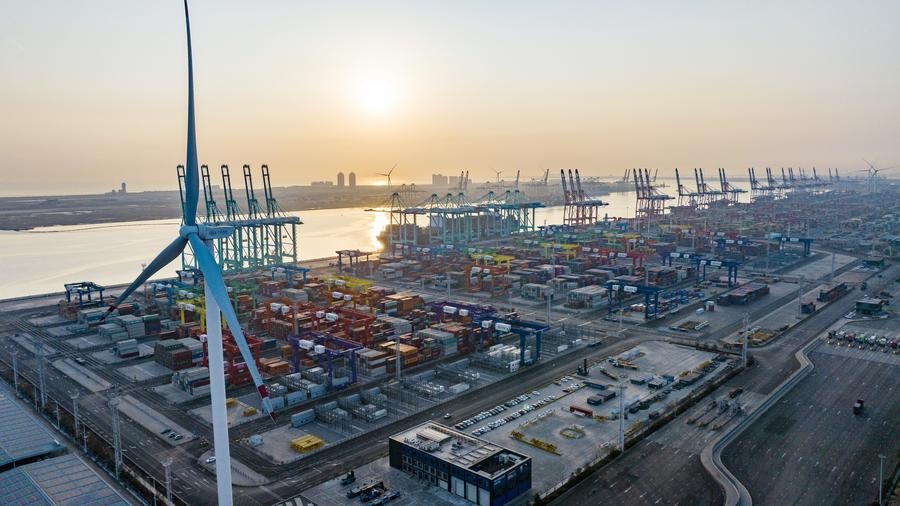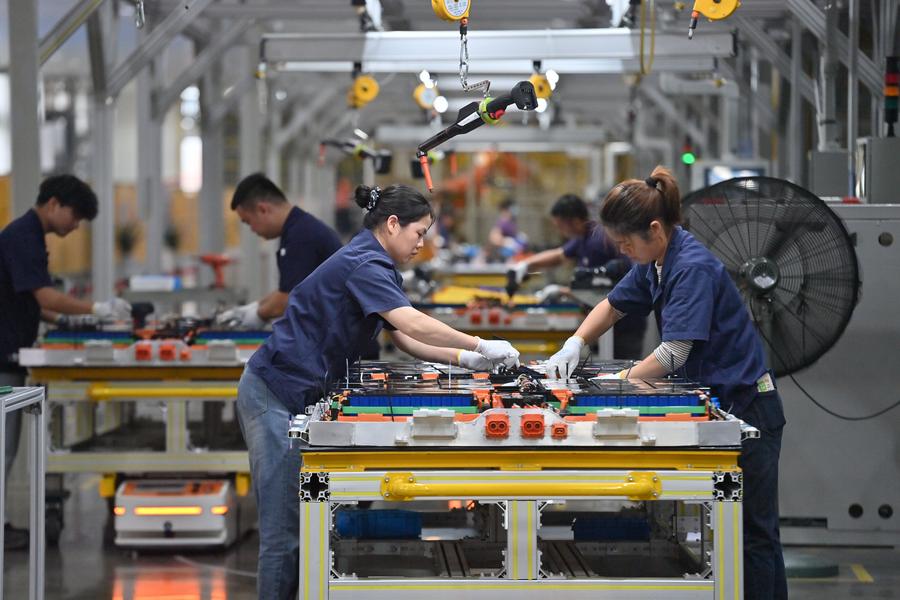Why Chinese modernization a buzzword during China's ‘two sessions’?

An aerial drone photo taken on Feb 2, 2024 shows the smart zero-carbon terminal of Tianjin Port in north China's Tianjin. [Xinhua/Zhao Zishuo]
Chinese modernization is the modernization of a huge population, of common prosperity for all, of material and cultural-ethical advancement, of harmony between humanity and nature, and of peaceful development.
BEIJING -- Chinese modernization remains a buzzword during the ongoing annual sessions of the top legislature and political advisory body.
During the "two sessions," global observers have been closely following pronouncements regarding policy and economic decisions in order to better understand the Chinese path to modernization. They say China's experience is inspiring the world, especially developing countries.
Chinese modernization is the modernization of a huge population, of common prosperity for all, of material and cultural-ethical advancement, of harmony between humanity and nature, and of peaceful development.

A worker checks the growth of hydroponic strawberries at a modern agriculture demonstration park in Guantao county, north China's Hebei Province, March 8, 2024. [Xinhua/Wang Xiao]
Noticing the difference between Chinese-style modernization and the Western path to modernization, Ahmed Sallam, an Egyptian expert on Chinese affairs, said that China's path is rooted in its "unique civilization."
"The Chinese path to modernization aims to achieve common prosperity for all," noted Liudmila Veselova, an associate professor at the School of Economics and Management of the St. Petersburg Branch of the Higher School of Economics, saying the Chinese government's innovative and rational policies are key to its development process.
"The Chinese path to modernization has become quite attractive to the developing countries," said Cavince Adhere, a Kenya-based international relations scholar.
China's path to modernization has been paved by peace, good intentions towards other countries and emphasis on the collective good of humanity, which explains why China has been sharing proceeds of its development with the rest of the world, the scholar said.
"Peace and shared development remain key attributes of China's modernization story," Adhere added.

Technicians work on a production line of a new energy vehicle battery manufacturer in Liuzhou, South China's Guangxi Zhuang autonomous region, May 10, 2023. [Xinhua/Huang Xiaobang]
"China is unique based on its large market size, its relatively high education, its strong integration of business and policy, and its large financial market," said Christoph Nedopil Wang, director of the Griffith Asia Institute and a professor of economics.
He noted that specific aspects of China's development can provide lessons for other countries, such as the importance of good education and free trade zones with a focus on supporting exports by domestic businesses.
"Whilst modernization is a global process and a universal aspiration, it can take and assume radically different forms," argued Keith Bennett, an international relations consultant based in London.
Chinese modernization "represents something fundamentally new" -- something that will come to be seen as a modernization that is actually comprehensive, equitable and sustainable, Bennett said.
Noting that China has shared its modernization opportunities with the world, the expert called Chinese modernization "a fundamentally different paradigm for modernization."
- Top legislature schedules standing committee session for late February
- China's top legislator meets with Uruguayan president
- Senior legislator surveys Anhui on formulating outline of provincial 15th Five-Year Plan
- China's top legislator meets with British PM
- NPC deputies see more engagement with top court



